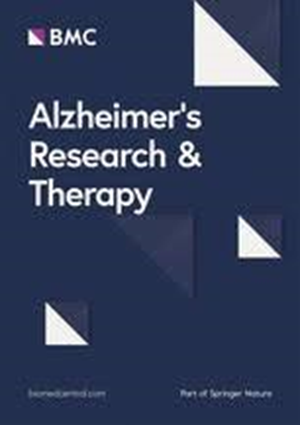Cholinesterase inhibitors and memantine are associated with a reduced mortality in nursing home residents with dementia: a longitudinal observational study
IF 7.9
1区 医学
Q1 CLINICAL NEUROLOGY
引用次数: 0
Abstract
A large proportion of nursing home (NH) residents suffer from dementia and effects of conventional anti-dementia drugs on their health is poorly known. We aimed to investigate the associations between exposure to anti-dementia drugs and mortality among NH residents. This retrospective longitudinal observational study involved 329 French NH and the residents admitted in these facilities since 2014 and having major neurocognitive disorder. From their electronic health records, we obtained their age, sex, level of dependency, Charlson comorbidity index, and Mini mental examination score at admission. Exposure to anti-dementia drugs was determined using their prescription into 4 categories: none, exposure to acetylcholinesterase inhibitors (AChEI) alone, exposure to memantine alone, exposure to AChEI and memantine. Survival until the end of 2019 was studied in the entire cohort by Cox proportional hazards. To alleviate bias related to prescription of anti-dementia drugs, we formed propensity-score matched cohorts for each type of anti-dementia drug exposure, and studied survival by the same method. We studied 25,358 NH residents with major neurocognitive disorder. Their age at admission was 87.1 + 7.1 years and 69.8% of them were women. Exposure to anti-dementia drugs occurred in 2,550 (10.1%) for AChEI alone, in 2,055 (8.1%) for memantine alone, in 460 (0.2%) for AChEI plus memantine, whereas 20,293 (80.0%) had no exposure to anti-dementia drugs. Adjusted hazard ratios for mortality were significantly reduced for these three groups exposed to anti-dementia drugs, as compared to reference group: HR: 0.826, 95%CI 0.769 to 0.888 for AChEI; 0.857, 95%CI 0.795 to 0.923 for memantine; 0.742, 95%CI 0.640 to 0.861 for AChEI plus memantine. Results were consistent in propensity-score matched cohorts. The use of conventional anti-dementia drugs is associated with a lower mortality in nursing home residents with dementia and should be widely used in this population.胆碱酯酶抑制剂和美金刚与养老院痴呆症患者死亡率的降低有关:一项纵向观察研究
很大一部分疗养院居民患有痴呆症,而常规抗痴呆药物对他们健康的影响却鲜为人知。我们的目的是调查抗痴呆药物暴露与疗养院居民死亡率之间的关系。这项回顾性纵向观察研究涉及 329 名法国 NH 和自 2014 年以来入住这些机构并患有严重神经认知障碍的居民。我们从他们的电子健康记录中获得了他们的年龄、性别、依赖程度、夏尔森合并症指数以及入院时的迷你精神检查评分。根据他们的处方确定他们是否接触过抗痴呆药物,分为四类:无、仅接触过乙酰胆碱酯酶抑制剂(AChEI)、仅接触过美金刚、接触过乙酰胆碱酯酶抑制剂和美金刚。通过 Cox 比例危险度法研究了整个队列在 2019 年底前的存活率。为减少与抗痴呆药物处方相关的偏差,我们为每种抗痴呆药物暴露类型建立了倾向得分匹配队列,并采用相同的方法研究存活率。我们对 25358 名患有严重神经认知障碍的 NH 居民进行了研究。他们入院时的年龄为 87.1 + 7.1 岁,其中 69.8% 为女性。有2550人(10.1%)单独服用了乙酰胆碱酯酶抑制剂,2055人(8.1%)单独服用了美金刚,460人(0.2%)服用了乙酰胆碱酯酶抑制剂加美金刚,而有20293人(80.0%)没有服用抗痴呆药物。与参照组相比,使用抗痴呆药物的这三类患者的调整后死亡率危险比明显降低:HR:AChEI 为 0.826,95%CI 为 0.769 至 0.888;美金刚为 0.857,95%CI 为 0.795 至 0.923;AChEI 加美金刚为 0.742,95%CI 为 0.640 至 0.861。倾向分数匹配队列的结果一致。使用常规抗痴呆药物可降低养老院痴呆患者的死亡率,因此应在这一人群中广泛使用。
本文章由计算机程序翻译,如有差异,请以英文原文为准。
求助全文
约1分钟内获得全文
求助全文
来源期刊

Alzheimer's Research & Therapy
医学-神经病学
CiteScore
13.10
自引率
3.30%
发文量
172
审稿时长
>12 weeks
期刊介绍:
Alzheimer's Research & Therapy is an international peer-reviewed journal that focuses on translational research into Alzheimer's disease and other neurodegenerative diseases. It publishes open-access basic research, clinical trials, drug discovery and development studies, and epidemiologic studies. The journal also includes reviews, viewpoints, commentaries, debates, and reports. All articles published in Alzheimer's Research & Therapy are included in several reputable databases such as CAS, Current contents, DOAJ, Embase, Journal Citation Reports/Science Edition, MEDLINE, PubMed, PubMed Central, Science Citation Index Expanded (Web of Science) and Scopus.
 求助内容:
求助内容: 应助结果提醒方式:
应助结果提醒方式:


